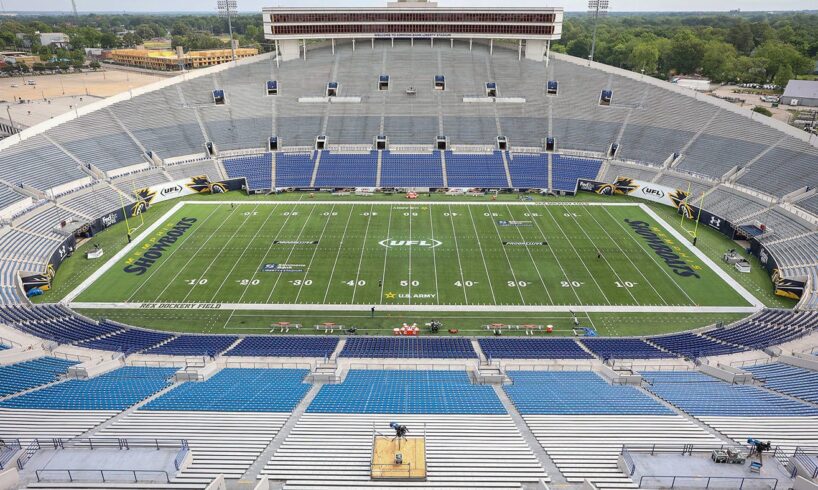
The Pac-12’s membership offer to Memphis would have been a “bad” deal for the university, Tigers athletic director Ed Scott said Thursday, confirming, too, that the Pac-12 was only willing to cover $2.5 million of AAC’s $25 million exit fees.
“I’m bullish on Memphis’ future,” Scott said. “I think sometimes we get enamored by the new and we want to take a bad deal. That deal was not a good deal for the University of Memphis.”
With Memphis and other AAC programs Tulane, South Florida and UTSA also declining to jump, the Pac-12 has been left reeling as it seeks to reach eight members, which is the minimum threshold to be recognized as an FBS conference. The conference’s effort to reestablish itself has thus far resulted in the poaching of five Mountain West schools to pair with longtime Pac-12 members Oregon State and Washington State.
“If y’all haven’t seen the latest reports of what’s gone on between the Mountain West and the Pac six (or) seven right now, this is a fluid situation,” Scott said. “That’s the other thing. When we talk about the decision that was made by the University of Memphis to not join the Pac, as I like to call them right now at this time, that was not a binary decision. That was not a ‘No, we’re not ever going anywhere.’ That was based on the offer that was presented in front of us, that we’re not taking that offer because we don’t think less of ourselves.”
The Pac-12 claimed in a presentation that the league would be able to generate a per-school distribution clearing $12 million had the big fish in the AAC joined the league, according to Yahoo Sports. The number would be an increase from the nearly $9 million that AAC programs receive.
In addition to the hefty exit fee, however, changing conferences would have come with costly travel hurdles that would have cut into any new conference revenue, which was a concern Scott cited in his explanation for why Memphis stayed in…
..






